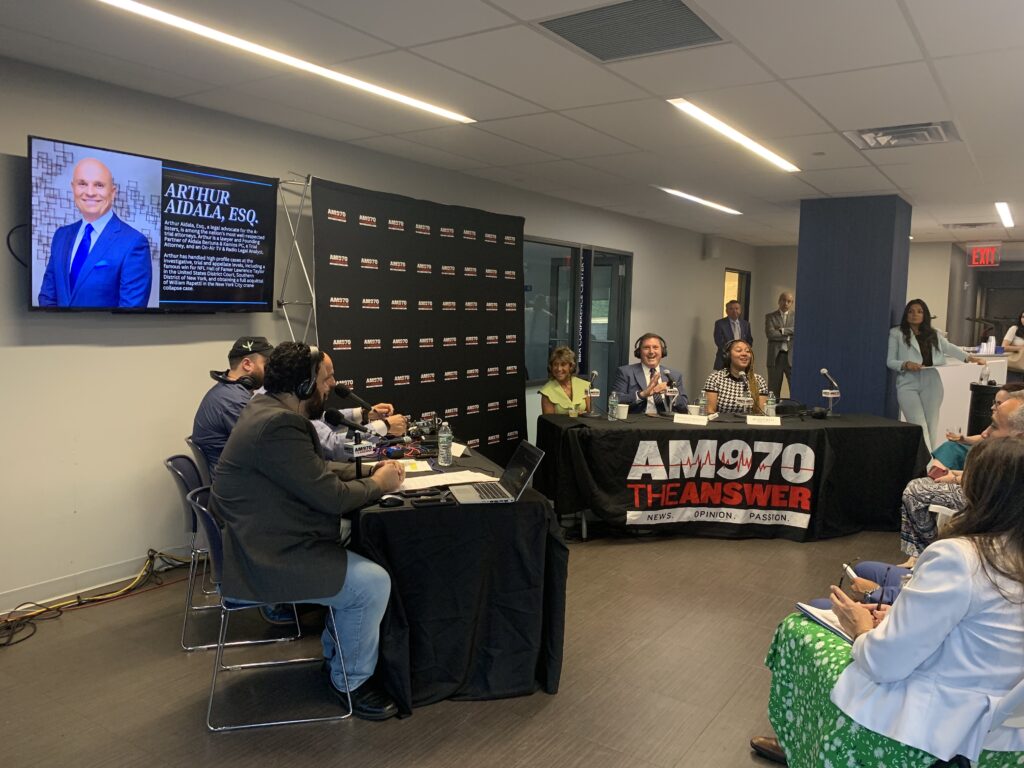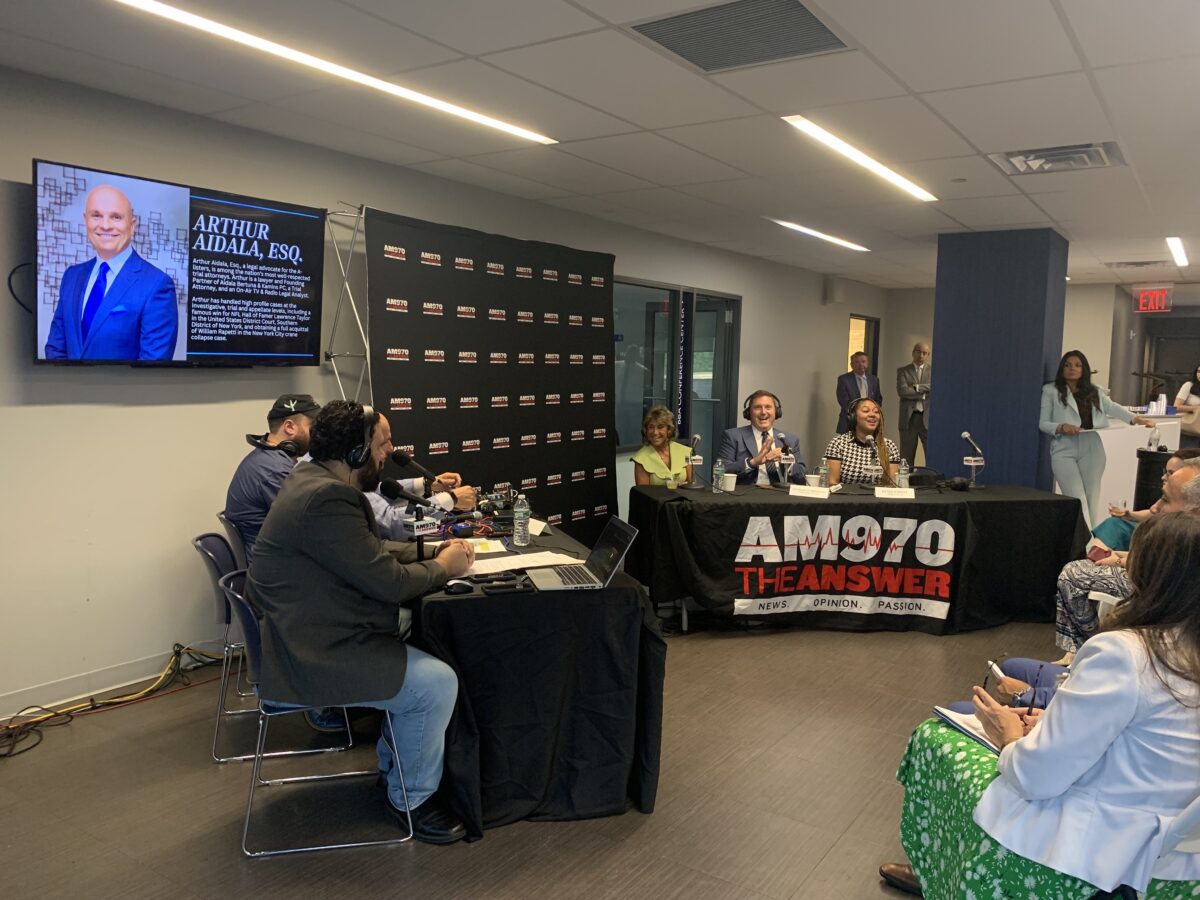Court Reporter Symposium Kicks Off Amid Worker Shortage

The panel at the symposium.
By Carmo Moniz | news@queensledger.com
The Court Reporter Symposium returned to Plaza College in Forest Hills for its seventh year on Friday, amid a current national shortage of people in the profession.
Court reporters exist at every level of the court system, and are responsible for creating official transcripts of legal proceedings. There is currently a shortage of around 5,000 court reporters across the country, with an estimated 27,000 in the industry, according to the National Court Reporters Association.
The event featured prominent figures in the court reporting industry in a discussion moderated by celebrity lawyers Arthur Aidala and Kevin McCullough, both Fox News legal commentators.
Plaza College has the largest court reporting program in the country, and is the last remaining court reporting school in New York City. The school’s program began when it took over the New York Career Institute’s program in 2016, according to Plaza College Court Reporting Program Adviser Karen Santucci.
“We thought it was important to let the court reporting community know that we were the only school left in the New York City area,” Santucci said in an interview. “This field is a field that most people don’t know about, the job opportunities are endless, and the problem is getting the word out.”
Nationally, court reporters can earn anywhere from around $30,000 to over $100,000 per year, according to the U.S. Bureau of Labor Statistics. In the same data, salaries were found to be on the higher end in New York, averaging out at around $106,000.
David Gordon, said it took him about four years to get to typing at a rate of 225 words per minute, the program’s requirement for graduation. Gordon said that he recently took a job at the grand jury across the street from the school.
“You don’t even need to graduate to get a job, but you will get a job immediately once you finish, ” Gordon said. “It’s very very rewarding, you turn out a transcript, you look at it and it’s perfect, and you just feel good. And the money is amazing.”
Cecilia Kurtz, who is currently enrolled in the program, said she is hoping to graduate by the end of the year.
“It’s definitely a lot of work, you definitely need dedication and practice,” Kurtz said. “Everybody keeps saying that there’s a shortage and pushing us to get out of class, get out of school, practice.”
Less than 10 years ago, in 2014, the number of court reporters was enough to address demand across the country, according to a report sponsored by the National Court Reporters Association. The same report estimated that there would be a shortage of 5,500 court reporters by 2018, only a small overprediction of today’s numbers.
In New York’s court system, the shortage means that court reporters are not guaranteed to be available to cover arguments on motions, according to the New York State Unified Court System website. Assistant Supervisor of the Queens Grand Jury Pam Fuller said that court reporters play a critical role in grand jury operations.
“You just need to really be able to take down testimony at 175 words a minute,” Fuller said. “[Grand jury proceedings] require an exact record of what occurred in each case that is being presented to a grand jury, so, with that you are really gearing yourself for lower courts and then moving on to the Supreme Court.”
New York State Court Reporters Association president Reid Goldsmith, who worked as a court reporter in the New York State Queens Supreme Court for nearly 40 years before retiring, said that he is not concerned about technology like artificial intelligence taking over court reporting jobs because the quality those technologies provide is not as high.
“We are often seen but not heard, so the tendency is to overlook us as a profession,” Goldsmith said in an interview. “But we’re at the front row of everything.”




